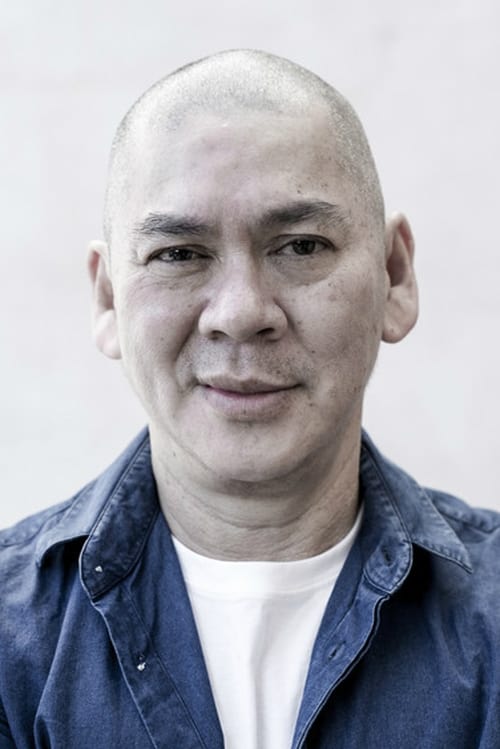
Director
The walker with the shaved head and dressed in a red robe is barefoot. He walks slowly but determinedly through the forest, over stones and grassland. He also makes his way through the shadows of trees and houses. He sets foot in the train station, the church and the museum. The sun rises and sets again. The walker passes through Washington, D.C. Another stranger is also on the move in the city. We are unsure whether or not he is following the walker.

Director
"For reasons of health, Lee Kang-Sheng and I moved to the mountains. We don't have any neighbors. Our house is part of a row of dilapidated houses. I love these abandoned houses. I often walk around in them casually. I think they are beautiful. I said to Lee Kang-Sheng : We don't have to go elsewhere to make films anymore. I'll make all my remaining films right here. I got some old chairs and some of my paintings and arranged them in these abandoned houses. And thus, this film was made." Tsai Ming-Liang

Director
The ninth opus of his Walker Films series, which was shot at Centre Pompidou.
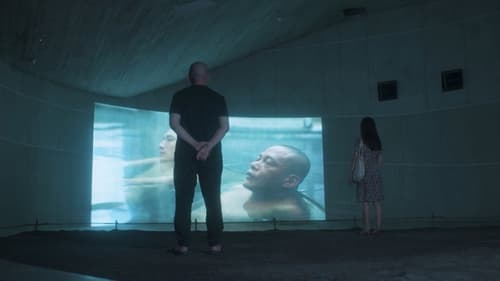
Director
This short by Tsai Ming-liang, completed in 2021, was filmed at "the Dune" in Yilan, Taiwan, where the eight films in his Walker series were being shown.

This short by Tsai Ming-liang, completed in 2021, was filmed at "the Dune" in Yilan, Taiwan, where the eight films in his Walker series were being shown.

Director
Follows the lives of two big stars in Taiwan. Since a failed spine surgery 40 years ago, Lee Pei-jing, known as the “Moon singer”, has been confined to a wheelchair. Actor Chang Feng is reaching one hundred years old. Tsai describes Chang as a tree, which looks ever more beautiful as it grows old.

Director of Photography
In 2019, the night in Hong Kong was still in fascinating beauty and the landscape of everyday life was gradually changing. Travelling the streets, Tsai Ming-liang documented the city's rhythm and ambience, along with an overpass.

Writer
In 2019, the night in Hong Kong was still in fascinating beauty and the landscape of everyday life was gradually changing. Travelling the streets, Tsai Ming-liang documented the city's rhythm and ambience, along with an overpass.

Director
In 2019, the night in Hong Kong was still in fascinating beauty and the landscape of everyday life was gradually changing. Travelling the streets, Tsai Ming-liang documented the city's rhythm and ambience, along with an overpass.

Himself
For every film completed, dozens of potential films fall by the wayside and never make it onto the big screen. In the VR experience Missing Pictures, Abel Ferrara, Tsai Ming-liang, Catherine Hardwicke, Naomi Kawase, and Lee Myung-Se give us a guided tour of a story they were not able to tell.
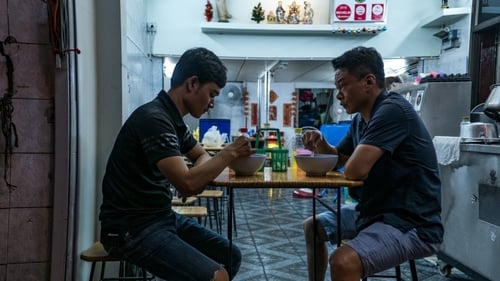
Executive Producer
Kang lives alone in a big house, Non in a small apartment in town. They meet, and then part, their days flowing on as before.

Writer
Kang lives alone in a big house, Non in a small apartment in town. They meet, and then part, their days flowing on as before.

Director
Kang lives alone in a big house, Non in a small apartment in town. They meet, and then part, their days flowing on as before.

Director
"The very first Taipei Golden Horse Film Festival was held here at Zhongshan Hall. During my university days, I volunteered as a ticket seller in order to watch films for free. Many years later, I received the top award at the Taipei Film Festival in an award ceremony held here as well. I have also run a coffeehouse here and often held small screenings of classic films during that time. Last year, I shot my film, Your Face, inside Guangfu Auditorium. The film was composed of thirteen big close-ups. Each of those thirteen faces was filled with the passage of time. Now, I am given a chance to film Zhongshan Hall again. I switched off all the lights and allowed the warm winter sun to shine on her face."
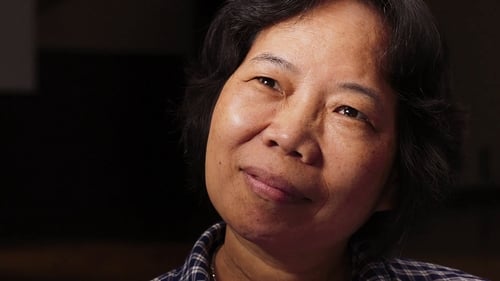
Producer
Composed of a series of portrait shots of mostly anonymous individuals, filmmaker Tsai Ming-liang's digital experiment turns the human face into a subject of dramatic intrigue.

Self
Composed of a series of portrait shots of mostly anonymous individuals, filmmaker Tsai Ming-liang's digital experiment turns the human face into a subject of dramatic intrigue.

Director
Composed of a series of portrait shots of mostly anonymous individuals, filmmaker Tsai Ming-liang's digital experiment turns the human face into a subject of dramatic intrigue.

Screenplay
In 2018, Tsai Ming-Liang was invited by the Northeast and Yilan Coast National Scenic Area Administration to make this film, his eighth in the "Walker" series. In the constant passage of time, the Zen-like footsteps of the Walker has finally allowed us to see the Pacific Ocean, the open sky, the seagulls, the black sand, an eel catching settlement that arose in the cold winter rain, the twisting branches of the lintou trees, flotsam piled up like mountains, and a newly constructed cement house, which seems to offer a temporary place of rest for the Walker. "Sand" premiered together with the opening of the Zhuangwei Dune Visitor Center.

Director
In 2018, Tsai Ming-Liang was invited by the Northeast and Yilan Coast National Scenic Area Administration to make this film, his eighth in the "Walker" series. In the constant passage of time, the Zen-like footsteps of the Walker has finally allowed us to see the Pacific Ocean, the open sky, the seagulls, the black sand, an eel catching settlement that arose in the cold winter rain, the twisting branches of the lintou trees, flotsam piled up like mountains, and a newly constructed cement house, which seems to offer a temporary place of rest for the Walker. "Sand" premiered together with the opening of the Zhuangwei Dune Visitor Center.

Director
Tsai Ming-Liang, the artisan of cinematography approaches virtual reality, pushing the boundaries of VR film. The Deserted stripped away traditional film techniques and is presented in 360 degrees, like a theatre. The viewer is placed in the scene and is allowed to look freely at the construction of the environment. And immersed in the handcraft of the scenes.

Himself
Six authorities of cinema describe their approach to transcendence, mysticism, spirituality and life after dead.

Producer
Ximending was once the trendiest area in Taipei, and it's also where Kang-sheng Lee's first film was shot. Twenty years ago, director Ming-liang Tsai asked Lee if he wanted to be in his film, and Lee's answer changed the course of his own life forever. Now Lee returns to where his career began to shoot a film about himself.
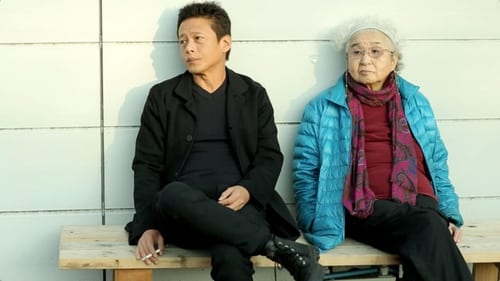
Director
A documentary about Nogami Teruyo, who for nearly half a century stood by Akira Kurosawa as a screenwriting collaborator, a script supervisor, and a companion.

Director
This is the festival trailer for Viennale - Vienna International Film Festival 2015. The trailer will be shown in over 100 cinemas in Austria and Germany and during the festival in several cinemas in Vienna.

Self
Lush jungle and a building in ruins are the ideal stage for a film-confession that defies storytelling and goes beyond conversation on cinema. Tsai Ming-Liang and his actor Lee Kang-sheng confess and put on stage a pièce in which attention and slowness are in tune with the rhythm of memory. The unveiling of Tsai Ming-liang’s filmmaking: from Stray Dogs to the most intimate notes of the director-actor relationship.

Director
Lush jungle and a building in ruins are the ideal stage for a film-confession that defies storytelling and goes beyond conversation on cinema. Tsai Ming-Liang and his actor Lee Kang-sheng confess and put on stage a pièce in which attention and slowness are in tune with the rhythm of memory. The unveiling of Tsai Ming-liang’s filmmaking: from Stray Dogs to the most intimate notes of the director-actor relationship.
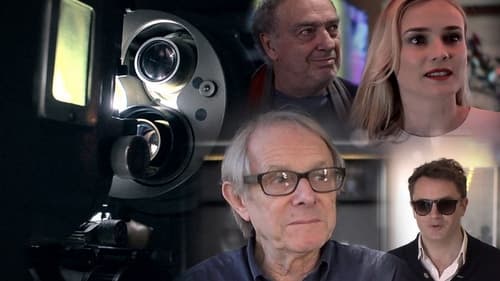
Self
French Cinema Mon Amour is an ensemble film in which each contributor brings their own voice, their own particular approach, their culture, and their language to produce a portrait of French cinema.

Director
In 2015, Tsai Ming-Liang was once again invited by the Hong Kong International Film Festival to make the opening short film. This time, he selected Shibuya station in Tokyo as his main filming location and invited the famous Japanese actor Masanobu Ando to appear alongside Lee Kang-Sheng. They sleep separately at a capsule hotel and cleanse themselves at a public bath. Their fatigued bodies yearn for sleep but restless minds keep them for falling asleep. "No No Sleep" won the Best Director Award at the Taipei Film Festival.
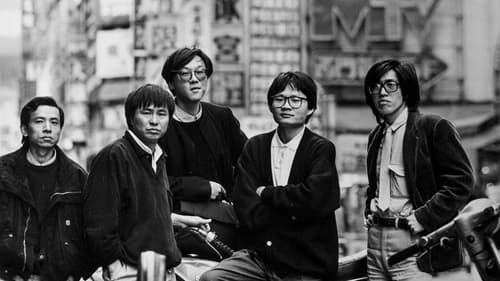
Self
With Taiwan remaining in the grip of martial law in 1982, a group of filmmakers from that country set out to establish a cultural identity through cinema and to share it with the world. This engaging documentary looks at the movement's legacy.

Art Direction
An alcoholic man and his two young children barely survive in Taipei. They cross paths with a lonely grocery clerk who might help them make a better life.

Writer
An alcoholic man and his two young children barely survive in Taipei. They cross paths with a lonely grocery clerk who might help them make a better life.

Director
An alcoholic man and his two young children barely survive in Taipei. They cross paths with a lonely grocery clerk who might help them make a better life.
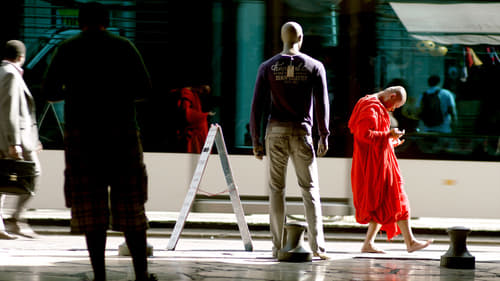
Adaptation
In 2014, Tsai Ming-Liang was invited to make a film for the MarseilleFID, Marseille International Film Festival. Since he was not familiar with Marseille, he decided to make a film as tourist, capturing the beautiful Mediterranean sunshine in the late summer of that year. He also invited famous French actor, Denis Lavant, to appear alongside Lee Kang-Sheng playing Xuanzang. "Journey to the West" was invited to be the opening short film at the Berlin International Film Festival the same year.

Director
In 2014, Tsai Ming-Liang was invited to make a film for the MarseilleFID, Marseille International Film Festival. Since he was not familiar with Marseille, he decided to make a film as tourist, capturing the beautiful Mediterranean sunshine in the late summer of that year. He also invited famous French actor, Denis Lavant, to appear alongside Lee Kang-Sheng playing Xuanzang. "Journey to the West" was invited to be the opening short film at the Berlin International Film Festival the same year.

Director
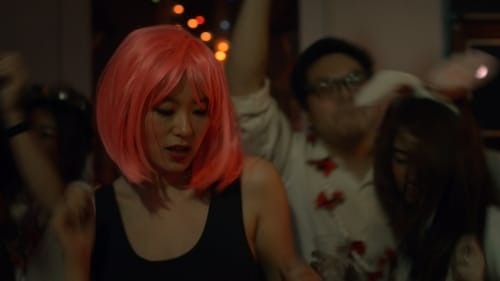
Screenplay
Six filmmakers present six short films about the experiences of Chinese immigrants. Shot across Malaysia, Thailand, Singapore and Myanmar, the anthology depicts the crisis of identity that accompanies international migration.

Director
In 2013, Tsai Ming-Liang was invited by Malaysian filmmaker Tan Chui Mui to make a short film for an anthology film, "Letters from the South". Tsai Ming-Liang returned to his hometown in Kuching, Malaysia and made a "Walker" film at his childhood home, "Walking on Water". The seven-storey flat which contained the happy memories of his childhood is now occupied by strangers. His old neighbour, an older girl who used to bathe and feed him when he was a child, has also grown old.

Director
Six filmmakers present six short films about the experiences of Chinese immigrants. Shot across Malaysia, Thailand, Singapore and Myanmar, the anthology depicts the crisis of identity that accompanies international migration.
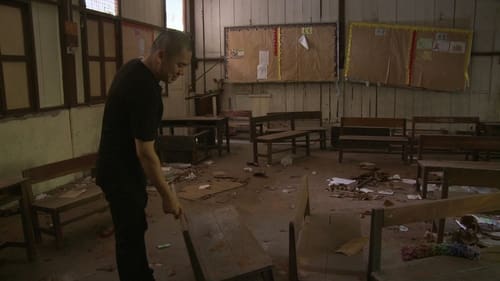
Self
A contemplative trip down memory lane with one of the leading voices of the Second New Wave of Taiwanese Cinema. Saw Tiong Guan clearly established a very personal bond with his subject, and also found many of Tsai Ming-liang’s colleagues prepared to complete this portrait of a quiet yet outspoken artist.
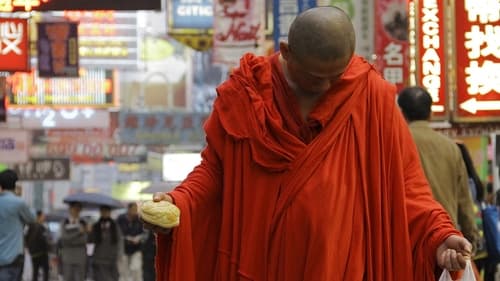
Director of Photography
In 2012, the Hong Kong International Film Festival invited Tsai Ming-Ling to make the opening short film. Having grown up with Hong Kong's popular culture, Tsai Ming-Liang decided to pay homage by making a "Walker" film, contrasting the Walker's slowness with the frenzied pace of Hong Kong's cosmopolitan life. The film ends with a song by Hong Kong actor and singer Samuel Hui, who was Tsai Ming-Liang's idol during his youth. The film was invited to be the closing short film for the Cannes Film Festival in 2012.

Writer
In 2012, the Hong Kong International Film Festival invited Tsai Ming-Ling to make the opening short film. Having grown up with Hong Kong's popular culture, Tsai Ming-Liang decided to pay homage by making a "Walker" film, contrasting the Walker's slowness with the frenzied pace of Hong Kong's cosmopolitan life. The film ends with a song by Hong Kong actor and singer Samuel Hui, who was Tsai Ming-Liang's idol during his youth. The film was invited to be the closing short film for the Cannes Film Festival in 2012.

Director
In 2012, the Hong Kong International Film Festival invited Tsai Ming-Ling to make the opening short film. Having grown up with Hong Kong's popular culture, Tsai Ming-Liang decided to pay homage by making a "Walker" film, contrasting the Walker's slowness with the frenzied pace of Hong Kong's cosmopolitan life. The film ends with a song by Hong Kong actor and singer Samuel Hui, who was Tsai Ming-Liang's idol during his youth. The film was invited to be the closing short film for the Cannes Film Festival in 2012.

Writer
In 2012, Taiwanese architects Michael Lin and Liao Wei-li invited Tsai Ming-Liang to create moving visuals for their exhibit at the Venise Architecture Biennale. Using the space at their preview exhibition in Taiwan, Tsai Ming-Liang made two short films, "Sleepwalk" and "Diamond Sutra", using the "Walker" concept. "Diamond Sutra" was later selected to be the opening short film for the Venise Film Festival. Tsai-Ming Liang said that gazing at the steam rising from a rice cooker reminded him of his mother's face as she laid dying, exhaling her final breath.

Director
In 2012, Taiwanese architects Michael Lin and Liao Wei-li invited Tsai Ming-Liang to create moving visuals for their exhibit at the Venise Architecture Biennale. Using the space at their preview exhibition in Taiwan, Tsai Ming-Liang made two short films, "Sleepwalk" and "Diamond Sutra", using the "Walker" concept. "Diamond Sutra" was later selected to be the opening short film for the Venise Film Festival. Tsai-Ming Liang said that gazing at the steam rising from a rice cooker reminded him of his mother's face as she laid dying, exhaling her final breath.

Writer
A continuation of Tsai Ming-Liang's Walker series, featuring Lee Kang-Sheng as a barefoot monk who walks very slowly.

Director
A continuation of Tsai Ming-Liang's Walker series, featuring Lee Kang-Sheng as a barefoot monk who walks very slowly.

Screenplay
In 2011, Tsai Ming-Liang staged a play, "Only You", for Taiwan's National Theater and Concert Hall. In it, there was a powerfully moving scene where monk Xuanzang walked at an extremely slow pace for half an hour. Lamenting the transient nature of theater, Tsai decided to make a movie out of this slow-walking performance, "No Form", the first of his "Walker Films" series.

Director
In 2011, Tsai Ming-Liang staged a play, "Only You", for Taiwan's National Theater and Concert Hall. In it, there was a powerfully moving scene where monk Xuanzang walked at an extremely slow pace for half an hour. Lamenting the transient nature of theater, Tsai decided to make a movie out of this slow-walking performance, "No Form", the first of his "Walker Films" series.

Director
A collection of shorts by four East Asian directors: Ann Hui on a male-to-female sex change, Kim Tae-yong on an emotional imposture, Gu Changwei on pregnancy in China and Tsai Ming-Liang on time and the city of Hong Kong.

Taipei 24H divides 24 hours in Taipei into 8 shorts. It opens with Cheng Fen-fen's upbeat and comedic "Share the Morning", and ends with Lee Kang-sheng running the final leg of this relay with "Remembrance" at 4am. Well-known director Tsai Ming-liang makes a rare appearance visiting a late night coffee shop. Taipei 24H is a contemporary urban chronicle of a city rarely at sleep.
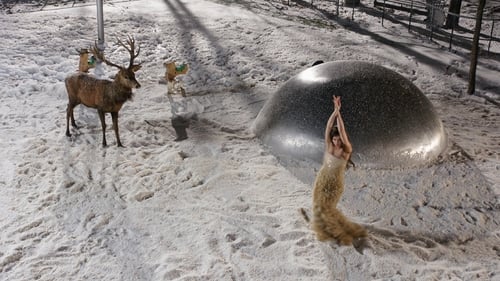
Hsiao-Kang, a Taiwanese film director, travels to the Louvre in Paris, France, to shoot a film that explores the Salomé myth.

Producer
Hsiao-Kang, a Taiwanese film director, travels to the Louvre in Paris, France, to shoot a film that explores the Salomé myth.

Screenplay
Hsiao-Kang, a Taiwanese film director, travels to the Louvre in Paris, France, to shoot a film that explores the Salomé myth.

Director
Hsiao-Kang, a Taiwanese film director, travels to the Louvre in Paris, France, to shoot a film that explores the Salomé myth.

Writer
Free interpretation of the myth. Tsai Ming-liang propels a woman neglected by her lover in the mob of the bus station of Kuala Lumpur.

Director of Photography
Free interpretation of the myth. Tsai Ming-liang propels a woman neglected by her lover in the mob of the bus station of Kuala Lumpur.

Cinematography
Free interpretation of the myth. Tsai Ming-liang propels a woman neglected by her lover in the mob of the bus station of Kuala Lumpur.

Director
Free interpretation of the myth. Tsai Ming-liang propels a woman neglected by her lover in the mob of the bus station of Kuala Lumpur.

Self as the film director of Visage
The title of the François Lunel film is the Buddhist proverb concluding by: "all is but illusion". His movie draws the Tsai Ming-Liang's face during the shooting of his movie Visage, which itself is also a movie within a movie.

Director
A behind-the-scenes documentary on the making of Ming-liang Tsai’s I Don’t Want to Sleep Alone.
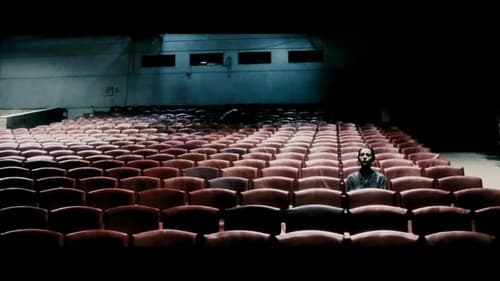
Director
A collective film of 33 shorts directed by different directors about their feeling about cinema.

Producer
Having lost all his money in the stock market, a depressed man falls in love with a woman over a suicide helpline.

Art Direction
Having lost all his money in the stock market, a depressed man falls in love with a woman over a suicide helpline.

Screenplay
To celebrate its 60th anniversary, the Cannes Film Festival invited around thirty filmmakers to create three-minute short films to compose the collective film Chacun son cinema. Tsai Ming-liang proposed a twinned piece with his feature Goodbye, Dragon Inn, an exploration of the movie theater as a public space and collective experience. Shortly after, Tsai put on this new version of the piece, twenty minutes longer, which was presented at the Venice Biennale.

Director
To celebrate its 60th anniversary, the Cannes Film Festival invited around thirty filmmakers to create three-minute short films to compose the collective film Chacun son cinema. Tsai Ming-liang proposed a twinned piece with his feature Goodbye, Dragon Inn, an exploration of the movie theater as a public space and collective experience. Shortly after, Tsai put on this new version of the piece, twenty minutes longer, which was presented at the Venice Biennale.

Writer
Rawang, an immigrant from Bangladesh living in awful conditions, takes pity on a Chinese man, Hsiao-kang, who is beaten up and left in the street. Rawang lovingly nurses him on a mattress he found. When he is almost healed, Hsiao-kang meets the waitress Chyi. His love for Rawang is put to the test.

Director of Photography
Rawang, an immigrant from Bangladesh living in awful conditions, takes pity on a Chinese man, Hsiao-kang, who is beaten up and left in the street. Rawang lovingly nurses him on a mattress he found. When he is almost healed, Hsiao-kang meets the waitress Chyi. His love for Rawang is put to the test.

Director
Rawang, an immigrant from Bangladesh living in awful conditions, takes pity on a Chinese man, Hsiao-kang, who is beaten up and left in the street. Rawang lovingly nurses him on a mattress he found. When he is almost healed, Hsiao-kang meets the waitress Chyi. His love for Rawang is put to the test.

Writer
Hsiao-Kang, now working as an adult movie actor, meets Shiang-chyi once again. Meanwhile, the city of Taipei faces a water shortage that makes the sales of watermelons skyrocket.

Director
Hsiao-Kang, now working as an adult movie actor, meets Shiang-chyi once again. Meanwhile, the city of Taipei faces a water shortage that makes the sales of watermelons skyrocket.

Director
Segment of the feature Welcome to São Paulo (2004), produced by São Paulo International Film Festival.

Director
All the feature is given prestige to by the narration in Caetano Veloso's voice, that also signs one of the segments of the project. São Paulo is the largest city of the Southern Hemisphere, with an incessant dynamics of cultural mixtures, with immigrants of all the world and migrants of all parts of Brazil. The gathering of these peculiarities are seen through the 13 film directors's sensibilities and their segments.

Director
Drama about a young boy who suffers from a rare deficiency disease. The medicine he has to take every day has the side effect of making him reek of ammonia. The consequent bullying and ostracism by schoolmates exacerbates the boy's sense of victimhood. His mother, meanwhile, runs a help-line for parents with comparable problems.

Writer
On a dark and rainy night, a historic and regal Taipei cinema sees its final film: 1967 martial arts feature "Dragon Inn". As the film plays, the lives of the theater's various employees and patrons intersect, and two ghostly actors arrive to mourn the passing of an era.

Director
On a dark and rainy night, a historic and regal Taipei cinema sees its final film: 1967 martial arts feature "Dragon Inn". As the film plays, the lives of the theater's various employees and patrons intersect, and two ghostly actors arrive to mourn the passing of an era.

Executive Producer
A grandmother is looking for her grandson, a teenager for his grandfather.

Director
Tsai Ming-liang designed this short film as a farewell to his friend Simon Field, who was about to leave his position as director of the Rotterdam Festival after eight years in office. The piece follows two dogs roaming the Tamshui River in Taipei, accompanied by the director's voice-over as he reads a written dedication for Field.

Narrator
Tsai Ming-liang designed this short film as a farewell to his friend Simon Field, who was about to leave his position as director of the Rotterdam Festival after eight years in office. The piece follows two dogs roaming the Tamshui River in Taipei, accompanied by the director's voice-over as he reads a written dedication for Field.

Self
Richly illustrated with film clips and interviews, OUR TIME, OUR STORY tells the still-evolving story of the Taiwanese "new wave," from its rise in the early 1980s, as the island was democratizing after decades under martial law, through growing international recognition and domestic debate in the 1990s. Spearheaded in its early years by such filmmakers as Edward Yang, Ko I-cheng, Hou Hsiao-hsien and Wan Jen, the movement revitalized Taiwan cinema through low-budget experiments that emphasized personal stories, political reflection and stylistic invention. Said filmmakers, writers and actors like Wu Nien-jen and Sylvia Chang, even "second wave" directors Tsai Ming-liang and Lin Cheng-sheng provide fond reminiscences and retrospective insights in this compelling account of one of the most distinctive national cinemas of the last quarter-century.
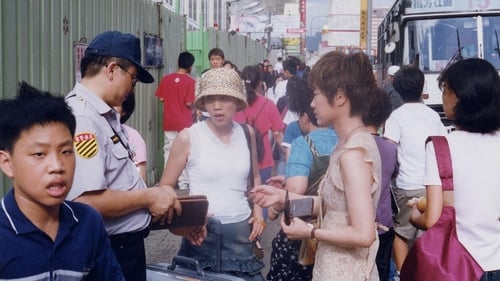
Screenplay
A young woman wandering around meets a young man going to a casting call for a pornographic film.

Director
A young woman wandering around meets a young man going to a casting call for a pornographic film.

Himself
Human shortcomings in the pursuit of an idol. Two film school students travel to interview Taiwanese film director Tsai Ming-liang and actor Lee Kang-sheng in Oslo.
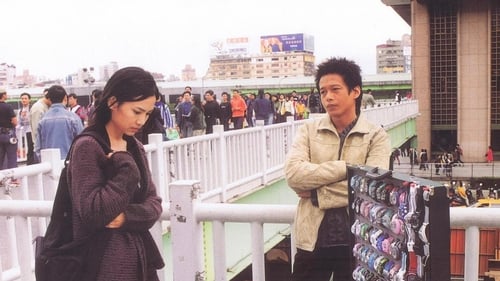
Writer
When a young street vendor with a grim home life meets a woman on her way to Paris, they forge an instant connection. He changes all the clocks in Taipei to French time, as he watches François Truffaut's Les 400 Coups; she has a strange encounter with its now-aging star, Jean-Pierre Leaud.

Director
When a young street vendor with a grim home life meets a woman on her way to Paris, they forge an instant connection. He changes all the clocks in Taipei to French time, as he watches François Truffaut's Les 400 Coups; she has a strange encounter with its now-aging star, Jean-Pierre Leaud.

Director
The original subject intended for this film was a spiritual medium who was unbelievably accurate. Tsai Ming-liang jumped on his 50cc motorbike, equipped with a DV camera ready to shoot her, to see whether the god would speak to his camera. But on the way, he was caught in a traffic jam of people gathered at another god’s festival. A man in a trance, flashy karaoke girls on stage, a power black-out. During his diversion, the camera discovers fish and underground passages
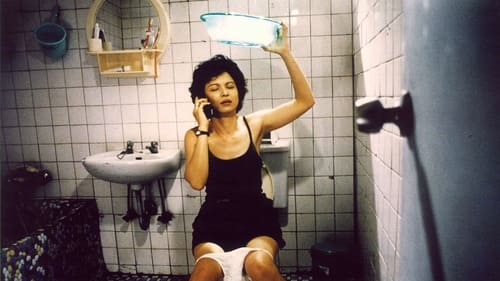
Screenplay
In the final days of the year 1999, almost everyone in Taiwan has died from a strange plague that ravished the island. As rain pours down relentlessly, a single man is stuck with an unfinished plumbing job and a hole in his floor. This results in a very odd relationship with the woman who lives below him.

Director
In the final days of the year 1999, almost everyone in Taiwan has died from a strange plague that ravished the island. As rain pours down relentlessly, a single man is stuck with an unfinished plumbing job and a hole in his floor. This results in a very odd relationship with the woman who lives below him.

Himself
This highly personal film essay demonstrates that Chinese cinema has dealt with questions of gender and sexuality more frankly and provocatively than any other national cinema. Yang ± Yin examines male bonding and phallic imagery in the swordplay and kung fu movies of the '60s and '70s; homosexuality; same-sex bonding and physical intimacy; the continuing emphasis on women's grievances in melodramas; and the phenomenon of Yam Kim-Fai, a Hong Kong actress who spent her life portraying men on and off the screen.

Screenplay
A young man develops severe neck pain after swimming in a polluted river; his dysfunctional parents are unable to provide any relief for him or themselves.

Director
A young man develops severe neck pain after swimming in a polluted river; his dysfunctional parents are unable to provide any relief for him or themselves.
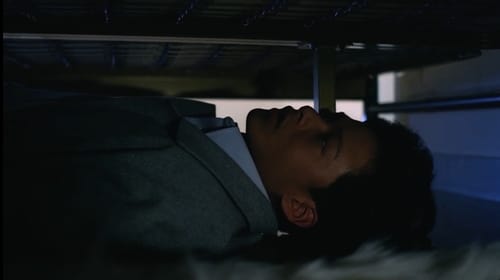
Screenplay
Three lonely young denizens of Taipei unknowingly share an apartment: Mei, a real estate agent who uses it for her sexual affairs; Ah-jung, her current lover; and Hsiao-kang, who's stolen the key and uses the apartment as a retreat.

Director
Three lonely young denizens of Taipei unknowingly share an apartment: Mei, a real estate agent who uses it for her sexual affairs; Ah-jung, her current lover; and Hsiao-kang, who's stolen the key and uses the apartment as a retreat.

Director
Tsai interrupted his pre-production for The River to make this pioneering documentary for Taiwan's nascent AIDS-awareness campaign. Ignoring instructions to 'play down the gay angle', he centres the film on his own very candid conversations with two HIV+ young men. Sadly the identities of the interviewees have to be concealed, and so the freewheeling camerawork focuses most often on Tsai himself; but the sense of rapport between the director and his 'new friends' is palpable and very moving, even to Western viewers already only too familiar with these issues.

Himself
Tsai interrupted his pre-production for The River to make this pioneering documentary for Taiwan's nascent AIDS-awareness campaign. Ignoring instructions to 'play down the gay angle', he centres the film on his own very candid conversations with two HIV+ young men. Sadly the identities of the interviewees have to be concealed, and so the freewheeling camerawork focuses most often on Tsai himself; but the sense of rapport between the director and his 'new friends' is palpable and very moving, even to Western viewers already only too familiar with these issues.

Screenplay
Defying his parents, disaffected youth Hsiao Kang drops out of the local cram school to head for the bright lights of downtown Taipei. He falls in with Ah Tze, a young hoodlum, and their relationship is a confused mixture of hero-worship and rivalry that soon leads to trouble.

Director
Defying his parents, disaffected youth Hsiao Kang drops out of the local cram school to head for the bright lights of downtown Taipei. He falls in with Ah Tze, a young hoodlum, and their relationship is a confused mixture of hero-worship and rivalry that soon leads to trouble.

Writer
A junior-high student bullies and blackmails a younger boy, then receives the same treatment at the hands of some older students.

Director
A junior-high student bullies and blackmails a younger boy, then receives the same treatment at the hands of some older students.

Writer
This sociological drama focuses on a construction worker’s family who cannot afford a house of their own, even though the head of the family builds houses.

Director
This sociological drama focuses on a construction worker’s family who cannot afford a house of their own, even though the head of the family builds houses.

Writer
A quiet story that follows the development of a love affair between an unmarried factory worker and the widowed factory manager.

Director
A quiet story that follows the development of a love affair between an unmarried factory worker and the widowed factory manager.

Writer
Mr and Mrs Chang live in Taipei's Hsi-Men-Ding (the city's entertainment/red light/nightlife district) with their teenaged kids. The parents work as cleaners in a "love hotel" and send the kids out to work as ticket scalpers, block-buying seats for hit movies like A City of Sadness and reselling them at a profit. Tragedy strikes when the daughter Mei-Hsueh flirts with the idea of prostituting herself and changes her mind at the last moment, leaving her first client with injuries that put him on the critical list. The focus throughout is on the son Ah Tong, who has a latent talent as a writer that is never going to flower.

Director
Mr and Mrs Chang live in Taipei's Hsi-Men-Ding (the city's entertainment/red light/nightlife district) with their teenaged kids. The parents work as cleaners in a "love hotel" and send the kids out to work as ticket scalpers, block-buying seats for hit movies like A City of Sadness and reselling them at a profit. Tragedy strikes when the daughter Mei-Hsueh flirts with the idea of prostituting herself and changes her mind at the last moment, leaving her first client with injuries that put him on the critical list. The focus throughout is on the son Ah Tong, who has a latent talent as a writer that is never going to flower.

Writer
The whole story revolves around a woman from marriage, marriage to divorce encounter sexual problems as the main axis, reflecting the Taiwan society in this regard subjective and objective taboos. The first paragraph of the description of the actress Xiao Xiaomin arranged with the parents of the scholar if strong engagement after the agreement with the high school students often travel, and finally cancel the engagement. The second paragraph to write her marriage in order to fight for a wounded into her young Wu Dawei testify to her husband's misunderstanding, but also the end of the divorce. The third paragraph to write her commitment to kindergarten education work to recognize the disabled young boy odd, she did not dare to face the problem of love, but the other's cheerful outlook touched her.

Writer
Kidnapped by a group of bandits and raped by their chief, Dan Zhu slowly develops feelings for the perpetrator. Echoing the social realism of Taiwanese new wave filmmaking, director Wang Tung revisits the wuxia genre, with the emphasis on psychology rather than action.

Writer
Zang Guang-xing is a veteran soldier from Mainland China who married a young Taiwanese woman. He has been working as a supervisor in a construction company for seven years. Everyday he rides the same motorbike to work. He suffers enough misery from riding that motorbike, and dreams of buying a car. So he asks around for decent second-hand cars. His son doesn't like any car he chooses. His wife, a typical Taiwanese woman who lives frugally, shaves any penny she can. She is the one who pays for the family's new car. They go out on trips happily, and become the envy of the neighborhood. Zhang thus gets the new car he's always dreamed of, but he starts to worry about it getting dirty, because it's simply too new, too nice for him. The car thus becomes his son's vehicle. He rides the old bike to work again, just like he has during all these years.

Screenplay
Three siblings idle their time while their parents are away. Youngest son, Hsiao-hung, finds a young fugitive taking refuge in their empty home, and hides him. Later, his mother finds the murderer sleeping in a cupboard – and a night of horror takes hold.

Producer
A dying forest flared up and the flavor of damp ruin, settled in on the tongue: Tsai Ming Liang created an entirely novel artwork with his tenth feature film 'Stray Dogs' at the Museum MoNTUE. Moving images eclipsed, in slivers and swathes, by immovable shadows of deadwood. Waking, sleep and everything in between proved indistinguishable. This documentary recreates elements of existential banality (on view) and guides focus inward. It establishes a firm, if converse, analog between cinema and consciousness: an interplay of movie (and its constituent elements of light, shadow and audience) mirrored in consciousness (and its building blocks of waking, sleep and dream) if you will.
